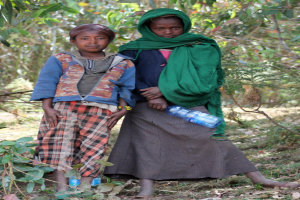
Addis Ababa/Washington/New York: Even after a truce was called in the Tigray region of Ethiopia, in effect, the siege by the Ethiopian and Eritrean forces continue.
The declarations of a cessation of hostilities by the Government of Ethiopia and the Tigray regional authority have been followed by initial convoys of life-saving assistance.
The World Health Organization (WHO) Director-General Dr Tedros Adhanom Ghebreyesus said today that to avert the humanitarian calamity and hundreds of thousands more people dying, what was needed was unfettered humanitarian access from those reinforcing the siege. The immediate need is for food and fuel, medicines and other basics to be allowed into the region.
After one of the longest blockades in history, there is a need for 100 trucks per day containing life-saving supplies to Tigray. Since the truce, there should have been at least 2,000 trucks going into Tigray. But there have been only 20 trucks in total – representing one per cent of the need. The convoy of some 20 trucks with food and nutrition supplies and one fuel tanker arrived there between April 1 and 2, 2022. This was the first time that supplies entered Tigray by road since mid-December, 2021, and the first time in eight months that humanitarian fuel supplies moved through the Semera-Mekelle corridor.
UN airlifts between Addis Ababa and Tigray’s capital city Mekelle are continuing. However, out of a target of 5.2 million people who should be receiving food every six weeks, the United Nations, along with its partners, could reach only about 1.2 million people with food, nearly six months after the current round of food distributions in Tigray got underway.
A recent joint report by Human Rights Watch and Amnesty International suggests that the ethnically-motivated mass atrocities committed by Amhara authorities in western Tigray still continue. Thousands of Ethiopians of Tigrayan ethnicity reportedly continue to be detained arbitrarily in life-threatening conditions in western Tigray.
Following the report, on April 8, 2022, the United States Department Spokesperson Ned Price stated that the US was “deeply troubled by the report’s finding that these acts amount to ethnic cleansing”. The United States reiterated its call for all foreign forces to withdraw from Ethiopia as well as for the regional state authorities to remove their security forces from neighbouring regions. Price said: “It remains our firm position that there must be credible investigations into and accountability for atrocities committed by any party to the conflict as part of any lasting solution to the crisis. We urge the Government of Ethiopia to cooperate with the UN Commission of Experts on Human Rights in Ethiopia.”
“We strongly support the declarations of a cessation of hostilities by the Government of Ethiopia and the Tigray regional authority and welcome the news that they have been followed by initial convoys of life-saving assistance. In keeping with these declarations, we renew our call on all armed actors to renounce and end human rights abuses and violence against civilians,” Price said.
Price urged all parties to take necessary steps to ensure the cessation of hostilities, unhindered and sustained humanitarian access, transparent investigations into human rights abuses and violations by all actors, and a negotiated resolution to the conflict in Ethiopia.
“Our humanitarian colleagues are also telling us there are serious challenges in other parts of Ethiopia, with more than 8 million people now reported to be affected by the ongoing drought in the south of the country,” Stéphane Dujarric, Spokesman for the Secretary-General, said in New York.
– global bihari bureau





